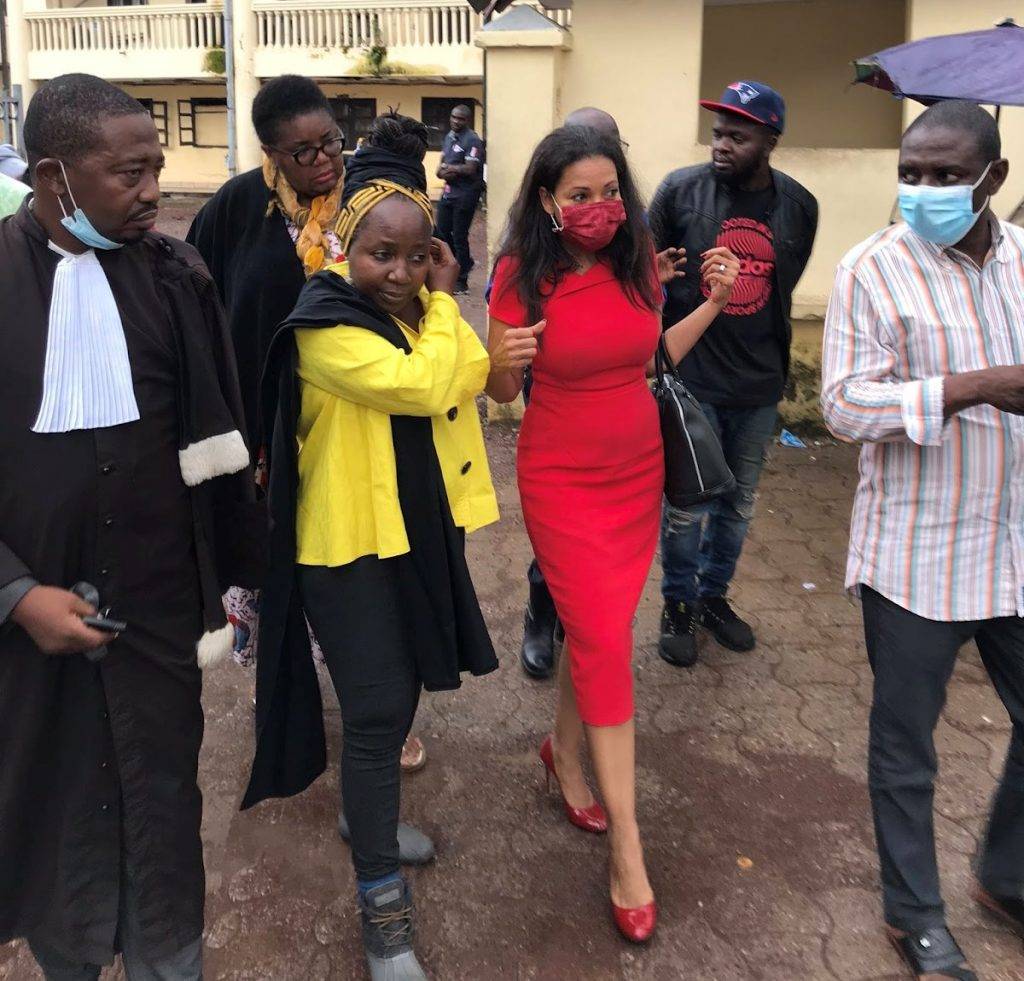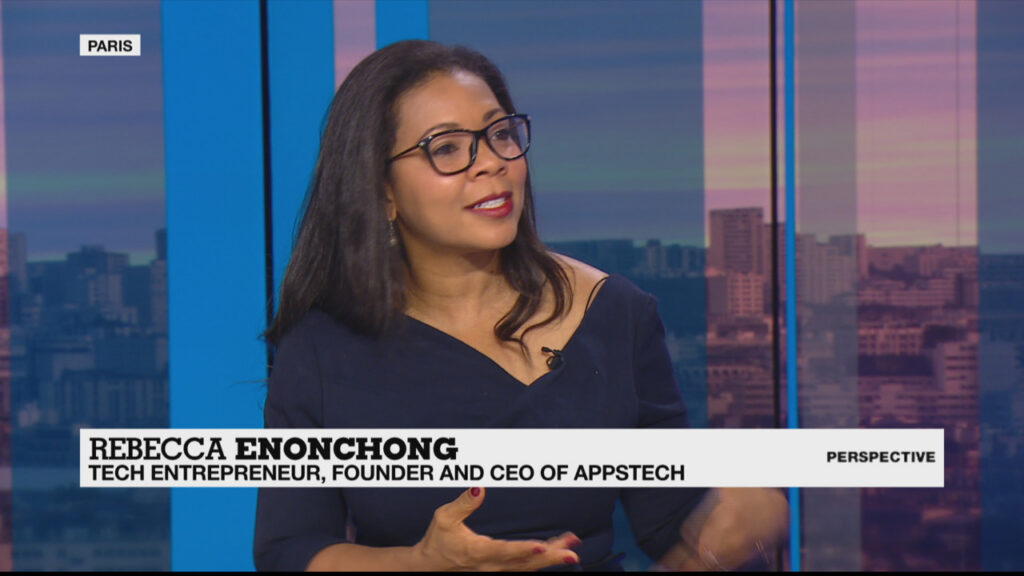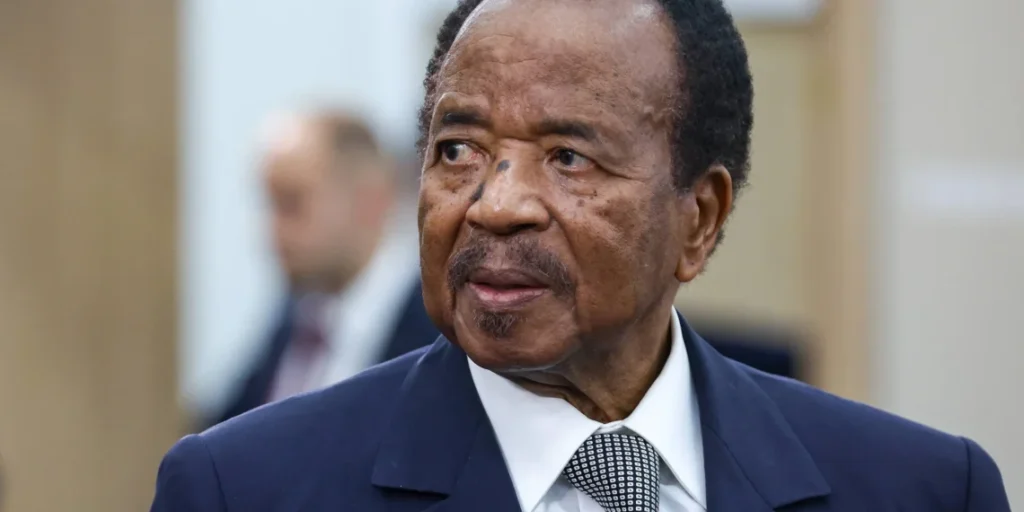On August 11, 2021, Rebecca Enonchong, an influential Cameroonian figure in African tech, was arrested and locked up in her home country of Cameroon after being accused of contempt.
According to Enonchong’s lawyers, she did not receive any complaint or summons, but was arrested under verbal orders from the attorney general.
Two days later, the charges against her were dropped, and she was released from custody.
“I’m free!! All charges dropped!” Enonchong wrote on Twitter/X after her. “We can retire the #FreeRebecca hashtag. So immensely grateful to all of you for believing in me and supporting me.”
Enonchong, 58, has been very vocal about Cameroon’s government, especially Paul Biya, the 92-year-old President who has ruled the country for 43 years.
In most jurisdictions, especially in Africa, it’s been observed that business personalities tend to stay away or refrain from publicly criticising governments for fear of retaliation.
Enonchong does not appear to be one of those personalities.
Since her release in 2021, she has been more vocal about Cameroon’s ruling administration, and has been drumming up interest and solidarity in trying to oust him in the lead-up to Cameroon’s October 12 election.

Becoming An Influential Figure In The Tech World
Enonchong was born on July 14, 1967, in Cameroon’s Southwest Region. Her father, Dr. Henry Ndifor Abi Enonchong, was a pioneering barrister who co-founded the Cameroon Bar Association.
Enonchong left for the United States in her teens, where she hustled door-to-door selling newspaper subscriptions at 15 and rose to manager by 17.
She earned a Bachelor of Science and Master of Science in Economics from the Catholic University of America, then cut her teeth at the Inter-American Development Bank and Oracle Corporation.
By 1999, at 32, Enonchong founded AppsTech from an apartment in Bethesda, Maryland. What started as a niche provider of enterprise software solutions—partnering with Oracle to deliver consulting, reselling, and training—ballooned into a powerhouse operating in over 50 countries.
“It was rather discouraging at the beginning, because nobody expected me to be the Founder and CEO of a company that was intended to be multinational, and was intended to generate millions of dollars,” she said in an interview about the early days of AppsTech.

In her native country of Cameroon, she launched ActivSpaces, a co-working hub and incubator in Douala and Buea. The space has mentored thousands of startups, funneling mentorship, funding, and tech guidance into the local ecosystem.
Globally, she co-founded AfriLabs, a network linking over 400 innovation hubs across 52 African nations.
Forbes named her “10 Female Tech Founders to Watch in Africa” in 2014, and she was elected a Fellow of the UK’s Royal Academy of Engineering in 2022.
Enonchong has built a following on the social media platform X. Under the handle @africatechie, she’s amassed over 200,000 followers who follow her posts covering a range of topics from technology, Cameroonian politics, and self-reflections.
By 2004, Enonchong relocated full-time to Cameroon, trading the comforts of the US for the “hostile terrain” of daily battles against bureaucracy, blackouts, and skepticism in her homeland.
“I chose to stay without submitting to it. And it costs. I almost lost everything,” she said in an interview with NexDim Empire about her decision to live in Cameroon.
Twenty years on, she admits it’s “exhausting“—a life where every morning feels like gearing up for battle.
Many of her peers left the country, discouraged by corruption and collapse, while others assimilated into the system.
“Staying or leaving is a personal matter. I will never judge those who leave. Nor those who remain silent“, she said.
Political Activism
As a student in the U.S., Enonchong organized protests against President Paul Biya from 1988 to 1997, co-founding Cameroonians for Peaceful and Democratic Change in 1990 and leading Cap Liberté USA for seven years.
“I have always chosen a fight for a cause, not for a party, but my fight doesn’t date from today at all,” she wrote on her X page.
Her protests peaked around the 1992 presidential election, Cameroon’s first multiparty vote, where she campaigned vigorously for Social Democratic Front (SDF) leader John Fru Ndi, widely believed to have won but was allegedly robbed by fraud.
Currently, Enonchong continues to be a strong voice in Cameroon’s politics, advocating for change in Cameroon’s government.
At 92, Paul Biya—Africa’s longest-serving leader—is currently seeking a seventh term. A win in the elections would give me a new year mandate, and would place him in power till he’s 100.

In 2008, a controversial constitutional amendment was introduced in Cameroon, which removed term limits, enabling Biya to run for office indefinitely.
In Yaoundé, some citizens said they did not understand why the president wants to cling to power at his age.
Others have welcomed his run for another term.
“There’s no-one better than [Biya]”, a Cameroonian consultant told the BBC in an interview.
Fighting For Change Through Social Media
Enonchong, now 58, has emerged as the opposition’s digital drum major. In September, she threw her weight behind a coalition of rivals—the Union for Change—uniting fractious parties under one banner, even if it meant endorsing a “transition candidate” from the old guard.
“Voting remains a civic duty,” she posted on September 11. “It’s by voting that a people asserts its significance and refuses to let others decide in its place.”
As Cameroon’s election day approached, Enonchong was active online. She hosted “The Big Debate” online, grilling candidates alongside journalists like Mimi Mefo. She has also live-streamed X Spaces on electoral integrity.
As of October 20th, Cameroonian authorities have not officially declared the results from election day. However, some journalists and media have been reporting that Issa Tchiroma Bakary, one of the opposition leaders, has accumulated the majority of the votes,
“Fellow Africans: We did it!!! Cameroonians have voted our 92-year-old president out,” Enonchong posted on social media on the unofficial results.
She continues to advocate for Biya’s removal on social media using the hashtag #StopTheFraud237 after reports of manipulation of election results.
Nearly a week after polls closed on October 12th, Cameroonian officials have yet to declare election results.
Enonchong continues to post on social media, her timeline 100% focused on the elections in Cameroon. She recently reshared unofficial polling data from various polling sites across the country, showing that Biya has not secured enough votes for a new mandate.
Whether Biya is ousted or declared the winner in the coming weeks, Enonchong’s foray into Cameroonian politics will not wither based on her recent activities.





